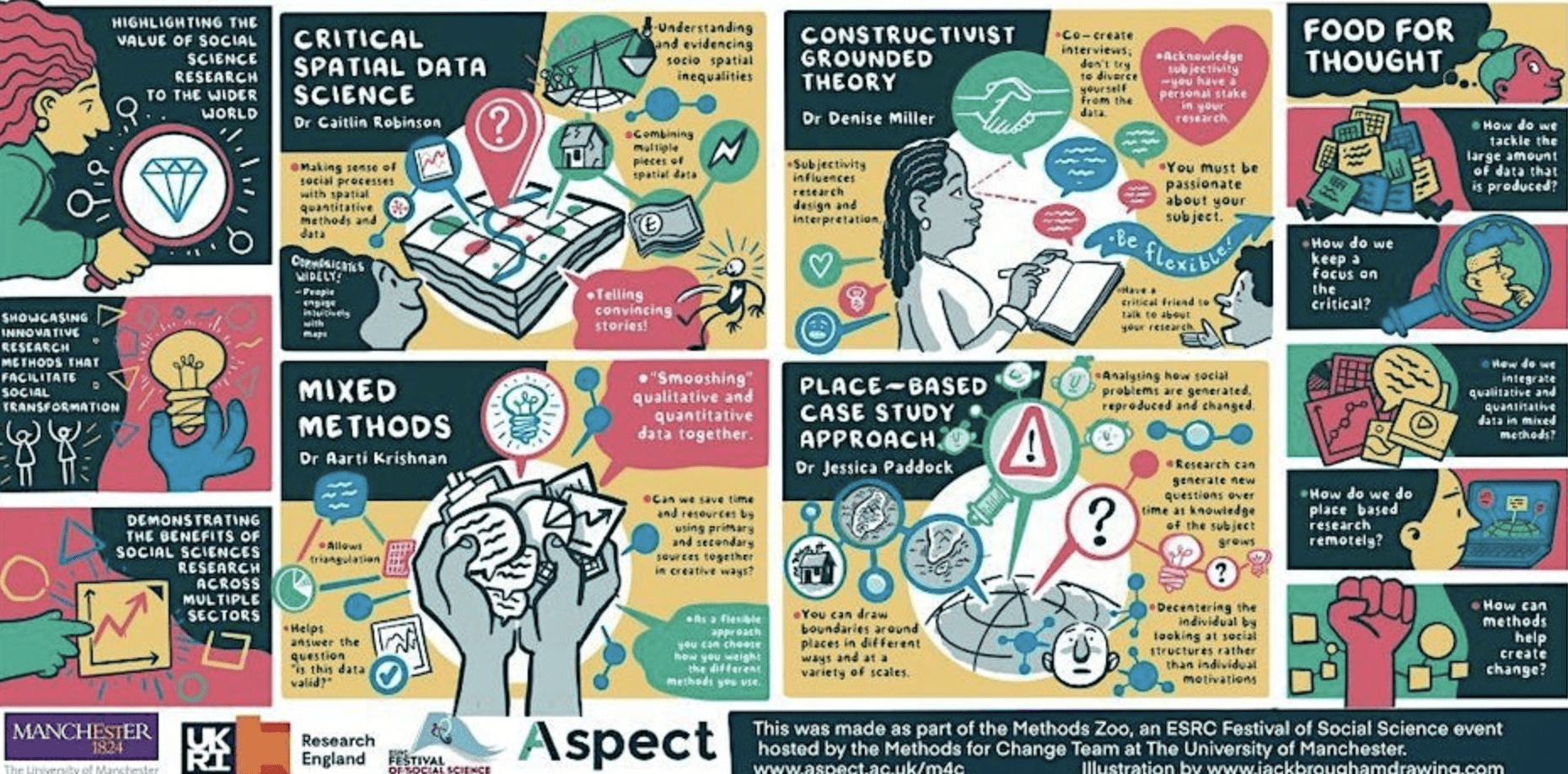Event Overview: Better Business for People & Planet
Aspect, the Research England Connecting Capability Funded network focused on transforming social science research into solutions for society, held its first annual event in Manchester. Entitled Better Business for People and Planet – Bridging Research and Industry, the conference was focused on how to tackle some of the key sustainability challenges of our times.
“This is a critical agenda,” explained Andrew James, associate dean for Business Engagement & External Relations at the University of Manchester, “in a world where we face a number of grand challenges such as climate change and the ageing society. The social sciences have a key role to play in understanding problems and turning knowledge into effective programmes.”
Aspect draws together academics and businesses to turn ideas into solutions and tackle the most complex social problems, added Professor Julia Black, strategic director for Innovation at the LSE. Technological solutions can only ever be part of the solution, she pointed out. “It’s also about behaviour change, the design and operation of markets and a range of other issues.
“Supporting social science is not like supporting STEM,” she said. “It’s much more about the business model, knowhow and data than it is about more ‘traditional’ intellectual property.”
And while the current research landscape is very uncertain because of political uncertainty around the world, “there is a growing emphasis on research with a purpose,” Colette Fagan, Manchester University’s vice-president for research) told the conference. “We need to bring together teams to work on shared challenge-based issues. We need to start thinking about commercialisation and innovation because the answers can’t be found without the social sciences.”
In sessions on Purpose in Practice, academic/business collaborations and what the scaling up of social science means, attendees heard about the challenges of commercialising social science research and how businesses are embracing social purpose, including a presentation about the extraordinary story of Ecotricity, the green electricity company started by former traveller Dale Vince, which took over its local football team, Forest Green Rovers and made it the greenest football club in the world. “We engage a lot of people and we can empower them to make change,” said Helen Taylor, who works for Vince.
The day ended on a warning about the unintended consequences of innovation. Jeremy Kent Hall, director of SPRU (Science Policy Research Unit at the University of Sussex), cited Borlaug’s paradox, named after Norman Borlaug, who is credited with saving a billion lives by creating ways of improving agricultural yields.
Borlaug managed to effectively eradicate global hunger, Kent Hall said, but this led to a population explosion and the severe environmental challenges that we are having to deal with today. “Innovations solve some problems but then create others. It will happen with the innovations we are seeing today. It is inevitable.”
Look our for event photographs, slides, session summaries and video clips coming soon.



